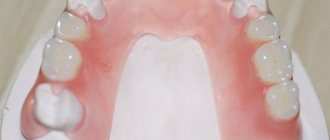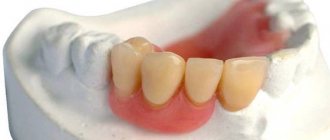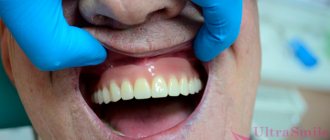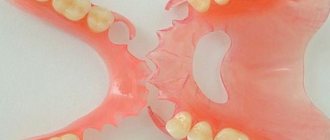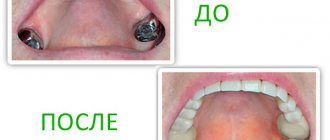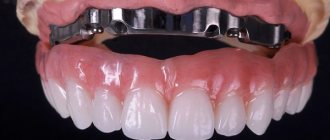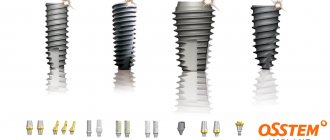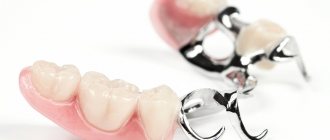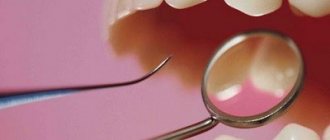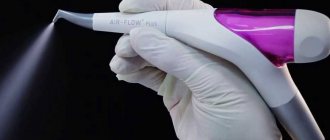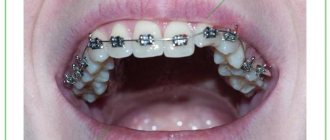The Dentika clinic in Voronezh offers services for the production of new generation removable dentures at a competitive cost. These structures may be required if there is a significant violation of the integrity of the row - end and other defects. The most technologically advanced options are clasp ones. They are attached using clasps (hooks) or attachments (locks).
These systems owe their name to the thin arched frame that connects the parts - on the upper jaw it runs along the palate, and on the lower jaw it runs under the tongue. This is a complex structure, the creation of which requires the efforts and high skill of two specialists at once - an orthopedist and a technician.
This option, although it is reliable and effective, is considered outdated - the problems of restoring chewing function and smile aesthetics can be easily solved with the help of implantation and the installation of a permanent bridge.
However, clasp remains in demand. Wearing it may be necessary in a number of situations that exclude the possibility of implantation. Namely when:
- presence of contraindications;
- severe bone tissue atrophy;
- blood diseases, etc.
In this case, the optimal solution to the problem would be to install a removable structure.
Application area
The Akri-Free full flexible prosthesis can fully replace the entire toothless jaw. Such structures can be installed in patients suffering from stage 1 and 2 periodontal disease, because They completely prevent tooth loosening.
Most often, Acry Free is used to treat bruxism, as well as diseases of the mandibular joint. Due to the high hypoallergenicity of the material used to make flexible dentures, such products are suitable for patients who have contraindications to wearing other types of plastic and even for those who cannot have their teeth prepared.
Fixation Features
The structure is fixed extremely tightly, almost motionless. The elements that hold it are hidden in the base, so it is not noticeable that there is a special system in the mouth.
This option allows you to solve several problems at once:
- restoration of smile aesthetics;
- functional orthopedic rehabilitation.
Clasp-type dentures do not need to be removed before going to bed. It is designed for constant wear. It is necessary to remove the structure only for hygiene procedures - brushing your teeth.
Installation procedure
During the initial examination by a specialist, the doctor examines the oral cavity and prepares it for orthopedic intervention. A mandatory item is preliminary sanitation of the mouth (treatment of gums and, if present, teeth). After this, the orthopedist selects the optimal color of the artificial gums and the dental crowns themselves, and then makes an impression.
The construction is made in a dental laboratory (based on an impression made). During the next visit, the specialist fixes the structure and always gives the patient the necessary recommendations regarding the care of the prosthesis and oral hygiene. Fixation of the prosthesis is absolutely painless.
Types of removable dentures
According to the method of fixation, clasp systems are divided into:
- Clasps - are attached to healthy teeth using metal hooks that fit tightly and ensure reliable and comfortable wearing.
- On attachments - held by complex elements - locking or hinge devices contained inside.
- Combined - they use different fixing parts - both metal hooks and attachments.
It is also worth mentioning another important part of the design - the arc. It is an element of a cast frame on which a bed of cold-curing dental plastic with artificial teeth is located. The base is made of a special alloy, which is highly durable, allowing the base to withstand any load.
Features and advantages of Acri-Free technology
If teeth on one of the patient’s jaws are completely missing, it is especially important that the prosthesis installed is comfortable, looks aesthetically pleasing, and does not cause any discomfort. This prosthesis has high technological characteristics and a very affordable price.
The complete removable denture 'ACRY FREE' has the following advantages:
- There is no negative effect on the gums,
- Manufacturing of the structure occurs quickly,
- The prosthesis is durable (lasts more than 5 years),
- Provides reliable fixation
- Looks like real teeth and gums
- It has a smooth surface, due to which less bacterial plaque and food debris accumulate on the surface of the prosthesis,
- Restoration and correction are available for mechanical defects that have arisen,
- The chewing load with such dentures is distributed evenly,
- The material from which the structure is made is completely non-toxic.
The few disadvantages of this type of prosthesis include the fact that bone tissue can atrophy over time. For this reason, it is extremely important to see your dentist regularly to check your current oral health.
Full or partial plate denture with imported set
In modern dentistry today, there are several types of prosthetics that satisfy the needs of patients in many respects, including comfort, speed of adaptation and price.
One of the methods of prosthetics is the installation of plate dentures. This is a fairly loyal type of prosthetics in terms of price category. The material from which plate dentures are made is usually plastic. Ceramic crowns are attached to a plastic base.
Plate dentures: material of manufacture
Comfort of use depends on the type of base:
– Rigid, hard plastic. This is a widespread type of plate prosthesis, the most affordable in price.
– Nylon or soft plastic. Very comfortable and flexible dentures. Being a type of plate type, they are distinguished by their speed of adaptation and ease of wearing.
– Plate dentures are divided into complete removable and partial removable.
A complete plate denture is used if the patient has completely lost teeth on one or both jaws. In this case, it is recommended to use implants as a support, which will avoid chafing the gums and reduce the feeling of discomfort.
A partial plate denture is designed to replace the absence of one chewing tooth or a small number of missing teeth in the dentition.
Unilateral dentures - removable sectors - are used when there are no teeth on one side of the jaw. They are often used as temporary or for cosmetic defects.
Lamellar dentures: advantages
Plate removable dentures are convenient in their simplicity. They have a number of absolute advantages, which are as follows:
- Create an even load on the bone tissue. This promotes relatively quick addiction.
- Quite easy to care for and does not take much time. Such prostheses do not oblige the patient to seriously monitor their condition.
- Wide and affordable price range. This allows absolutely all segments of the population to use these types of prostheses.
- Short production time. No major installation problems.
Lamellar dentures: disadvantages
But with all the advantages, I would like to focus on some of the disadvantages that plate removable dentures have.
- The plasticity and softness of the material from which the denture is made affects comfort and adaptation. The hard base rubs the gums and causes discomfort.
- Complete removable plate dentures completely cover the upper palate, which complicates the process of adaptation and can cause a gag reflex.
- Difficulty in achieving good fixation. Such problems especially arise with the installation of a prosthesis on the lower jaw.
- A partial removable plate denture is good for everyone. But unlike the clasp one, it still needs to be removed for cleaning.
- The need for sharpening and adjustment.
- May affect diction.
Lamellar dentures: installation stages
- First, the oral cavity and lips are treated with various antiseptic solutions for disinfection purposes.
- An impression is taken of both jaws.
- Initial production of a trial prosthesis in the laboratory.
- After all adjustments, a permanent denture is made in the laboratory.
Caring for plate dentures
The method of caring for removable dentures is quite simple and does not have any special frills. The main thing is regularity. The base of your dentures comes into contact with your gums, making them difficult to clean. Therefore, it is necessary to remove the denture every morning and evening, as well as after each meal, rinse it with warm water and rinse the mouth thoroughly.
Dentists insist that in the first days of wearing a denture, you should not remove it at night to speed up the adaptation process. Previously, removable dentures were made of microporous plastic that cracked when exposed to air. Such dentures must be placed in a glass of water at night. Air is not dangerous for modern materials. On the contrary, water is an excellent breeding ground for various bacteria. Therefore, dentures should be stored in a dry place.
You should also limit yourself in diet. Avoid eating viscous or sticky foods, such as candy or chewing gum. This may cause damage.
Lastly, if wearing a removable denture for a long time causes you discomfort, you should contact your dentist for adjustments. Take care of your health.
Lamellar dentures: prices
If you have any questions about plate dentures or the price of plate dentures, please call or use the special form on the website for a call back. We recommend making an appointment with the most experienced orthopedic dentist Alexander Vladimirovich Boyko, who has more than forty years of experience in dentistry and orthopedics, including.
| Removable dentures: | |
| Partial removable lamellar denture (1 jaw) | from 17,500.00 RUR |
| Complete removable laminar denture (1 jaw) | from RUB 23,000.00 |
| Removable clasp denture (1 jaw) | from RUB 39,000.00 |
| Removable denture with telescopic fixation (1 jaw) | 45 000,00 ₽ |
Caring for Acri-Free dentures
To maximize the life of the prosthesis, it is necessary to follow the recommendations for its care. Before going to bed, the structure must be removed; once a week, it must be left for several hours in a special antibacterial solution. In this way, the quality properties of the plastic used are preserved, and the surface of the prosthesis is cleaned of bacteria that accumulate on the surface.
Patients are recommended to purchase a special brush that is convenient for cleaning false teeth. A regular children's toothbrush with soft bristles will also work. With its help, you can very effectively clean your teeth and base without damaging the structure. It is advisable to clean your denture every morning.
After eating, if possible, you should rinse the product in running water (to get rid of stuck food residues). This procedure will maximally protect the oral cavity from the growth of harmful microorganisms. You can have your dentures professionally cleaned once every six months, which is done by a specialist in a dental office.
In case of mechanical damage, you should immediately contact a dentist who can adjust the prosthesis and return it to its original appearance, shape and functionality.
Features Deflex
Deflex has increased elasticity, which puts polyamide above nylon in many respects.
Due to increased resistance to temperature changes, a prosthesis based on Deflex does not soften when eating hot foods and does not harden when eating cold foods, which cannot be said about nylon analogues. Due to the minimal porosity of the material and maximum density, products made on its basis are characterized by a long service life, stability and high strength.
The prosthesis practically does not absorb liquid, so the patient does not have to worry about plaque forming on the surface of the device, leading to bad breath and discoloration of the structure.
Polyamide is a hypoallergenic material, which allows it to be used in patients prone to allergic reactions.
Materials
Various materials are used for the manufacture of permanent structures:
- cobalt-chrome, gold-palladium alloys;
- metal ceramics (this is a structure in the form of a metal frame coated with a layer of ceramics);
- ceramics (porcelain, zirconium dioxide, aluminum oxide).
In the manufacture of prostheses on implants, hypoallergenic, biocompatible materials that are safe for the health of patients are used. Among the options for such materials are ceramics, tantalum, zirconium, and various titanium alloys.
Who are flexible prostheses indicated for?
- They are most often used to replace partially missing teeth. To install them, you do not have to grind down adjacent teeth, and for many dental patients this circumstance is a significant advantage.
- Due to their light weight, they are recommended for prosthetics for patients with loose teeth due to periodontal disease and with particularly sensitive tooth enamel, which is not damaged by nylon clasps.
- Hypoallergenic nylon dentures are appreciated by people who suffer from an allergic reaction to acrylic and have learned the “delights” of denture stomatitis.
But, like any other artificial structure, lower and upper dentures also have certain disadvantages that make them impossible to use.
Types of nylon prostheses
Soft nylon dentures are placed on both the upper and lower jaws. Installation depends on the type of prosthetics:
- 1. Complete removable structures in case of tooth loss are fixed using the suction method. Additionally, gels and creams that improve attachment can be used.
- 2. Partial removable dentures are fixed using special clasps, attachments or telescopic crowns to adjacent supporting teeth.
Our doctors will select the optimal method of fixing the prosthesis so that it stays securely in the patient’s mouth and does not cause him discomfort.
Professional and cost-effective removable prosthetics at the “Smile Factor”
Removable dental prosthetics is an option for replacing missing units in a row for those for whom implantation is contraindicated and it is impossible to install fixed structures.
We manufacture new generation devices that are characterized by increased functionality, safety, hypoallergenicity and improved aesthetics. Modern prosthetic products do not rub the gums or cause discomfort, do not change their original color, and do not absorb foreign odors or moisture. Artificial teeth are almost no different from natural teeth; they are invisible to others and comfortable to use.
Patients are offered prostheses to choose from:
- Acrylic, made of German material Vertex. Comfortable to wear. The most affordable in the price segment;
- Nylon - elastic, flexible products. Suitable for people with metal allergies and a tendency to bleeding and gum inflammation. For patients with increased aesthetic requirements, we offer Candulor products made using a unique technology that allows us to achieve a natural shade of tissue in the oral cavity.
The most popular budget type of structures is acrylic. They look good, but they often cause allergic reactions, become more stained when worn, and also hold onto the jaw worse than their competitors.
Our clinic offers patients acrylic products made from modern Vertex material. These prosthetic devices do not cause allergic reactions or dry mouth. With the thinnest possible base, they are much stronger than their analogues and exhibit minimal shrinkage.
Nylon prostheses are distinguished by their aesthetic appearance. Thanks to their transparency, they merge with the mucous membrane and teeth, which makes them completely invisible. Also, the advantages of nylon designs include wearing comfort and accelerated adaptation. Due to the characteristics of the material, the product turns out to be as thin as possible, does not press, does not rub and does not affect diction. But, due to its elasticity, it is extremely difficult to achieve good fixation. Therefore, you have to use specialized creams.
A large selection of orthopedic products makes it possible for everyone to choose the appropriate option based on the condition of the oral cavity, the number of missing units and the financial capabilities of the patient.
Peculiarities
Silicone is invisible in the mouth, which allows you to achieve high aesthetics. The material is hypoallergenic, soft and flexible. However, it wears out quite quickly, losing its original shape. A gap is formed between the gum and the denture, into which food enters. As a result, an inflammatory process begins, the first sign of which is halitosis.
The softness and pliability of silicone does not provide a 100% guarantee that the denture will withstand the load when trying to chew solid food on a regular basis. Most dentists recommend using flexible dentures as a temporary replacement for lost teeth.
Removable devices are used to restore aesthetics and restore the functionality of a series of partially edentulous patients. It is secured in the mouth with the help of clasps (small plastic or metal hooks that are fixed around the “living tooth” and distribute the load on the denture when chewing).
